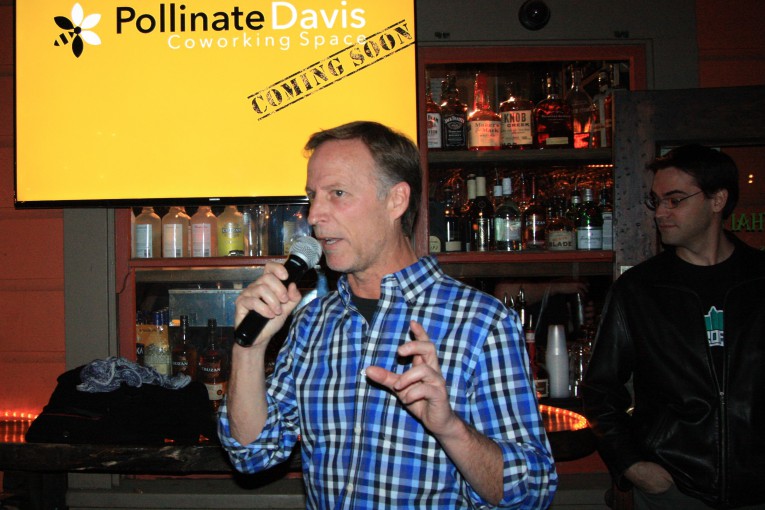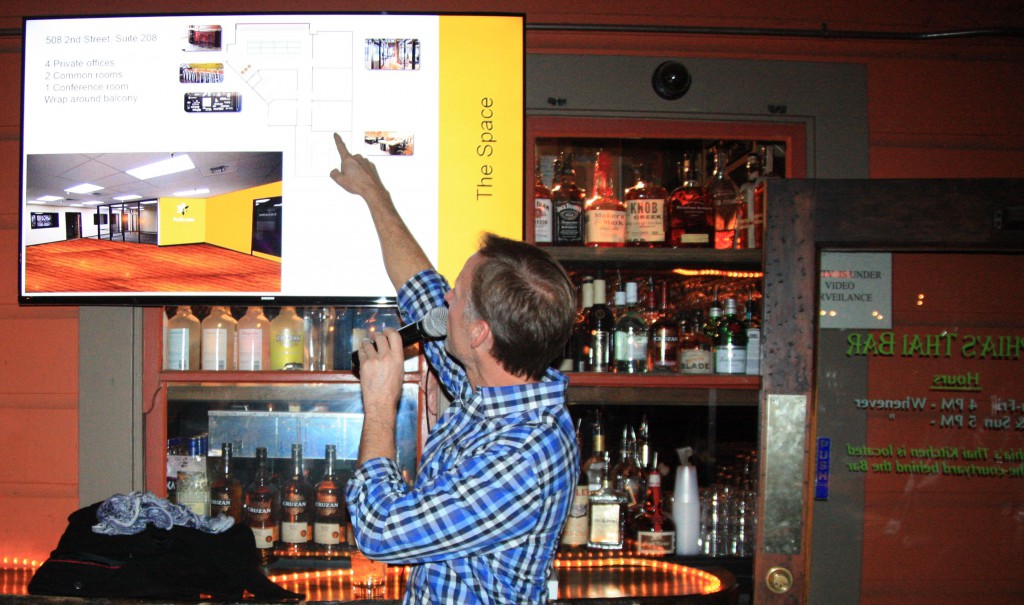

by Daniel Parrella, Michael Bisch, Bill Habicht, Matthew Miller, and Alex Rossbach
Startups frequently clash with the monolithic commercial real estate industry when it comes to leasing office space. Dorm rooms and coffee houses are suitable for the idea phase of a startup, but eventually access to office space becomes critical. Once a company receives its first round of funding or generates the revenue to hire its first employee, many startups find themselves struggling to find space that meets their needs.
A startup wants maximum flexibility in the first lease they sign, preferably on a month to month basis. Most landlords want companies to commit to at least six months before they agree to rent out an office. Six months can be a lifetime for a rapidly growing company. Many startups find themselves boxed into a lease that drags down capital, and is no longer filling their needs.
While large companies seeking office space have tremendous leverage to negotiate rates and concessions, startups receive little sympathy from landlords. Not only can relatively small amounts of office space be hard to find, but the ones that are available typically have very rigid leasing agreements with no buildout costs included.
The past few years has seen the rapid proliferation of coworking spaces, particularly in locations with heavy startup activity, such as New York City and the Bay Area. Coworking spaces offer flexible leasing terms month to month, or in some cases, day to day. Shared desks, conference rooms, and office spaces allow for a professional setting while at the same time keeping costs low for tenants. Some offer creative financing for startups through payment in equity rather than cash.
A non-profit community coworking space, POLLINATE Davis, is opening its doors this month to local startups. POLLINATE is located in the heart of Downtown Davis, at Regency Square, 508 Second Street, Suite 208. POLLINATE Davis has four private offices as well as a conference room and desks, which can be rented by individuals. They will be hosting classes on marketing, business, and programming for both their tenants as well as members of the public.
JumpStart Davis will be having its monthly showcasing event at 6:30pm on February 18th at Sophia’s Thai Kitchen in Davis. JumpStart Davis is highlighting three local companies that work in Biotech or Medtech. Speakers include Sudhee Lakshmana, co-founder of SonanuTech, Paul Henderson, from Accelerated Medical Diagnostics, and Charles Lee, who is the founder of Molecular Matrix. SonanuTech is a Davis Roots company.
A vibrant entrepreneurial ecosystem is not something that will happen over night. However, a sustained effort to grow the startup community can yield dividends for the entire city and region of Davis, and have us continue to be leaders in innovation.
If you have questions about the events or wish to join the effort, contact Daniel Parrella (danielfordavis@gmail.com), Michael Bisch (michael@davisproperty.com), Bill Habicht (bill@dccpres.org), Matthew Miller (msmiller@davisproperty.com), or Alex Rossbach (arossbach@davisroots.org).
Was there a subliminal message in the photograph–a prominent display of top-shelf booze adjacent to a visual-aid presentation on getting premium office space?
I’ll have a grey goose and cranberry juice plz
Now that’s co-working!
“by Daniel Parrella, Michael Bisch, Bill Habicht, Matthew Miller, and Alex Rossbach”
Thanks for all your hard work to make JumpStart and Pollinate Davis happen!
I wish innovators and start-up businesses all the best! Who knows maybe the next Edison, Wright Brothers, or Jobs and Wozniak is living here in Davis. Hopefully, they have a great idea for a business or service that they can launch and commercialize. I also want to wish well to those who promote and encourage budding entrepreneurs. That said though, let’s consider some of the arguments offered by the authors in “Co-Working Comes to Davis.” I believe their diagnosis of the problem is off base.
First, let’s begin with the opening statement “Start-ups clash with the monolithic commercial real estate industry when it comes to leasing office space”. That is total non-sense! The commercial real estate business is not a monolith and certainly not true in a small town with lots of property owners and investors. In a town like Davis and throughout the region, real estate ownership is an investment and choice of hundreds of different property owners. A few are corporations, many are small business people themselves, others are savers who own real estate for their retirement income, most compete in a marketplace and are generous and cautious property owners. There is nothing monolithic about the industry.
Second the use of the word “clash” is totally misplaced. In real estate as well as in most commercial transactions the tenant/consumer wants to pay as little as possible and the landlord/provider wants to get paid as much as the market will support. Probably the best advice to give a start-up is to learn to appreciate the perspective of the other party and figure out how to make a bargain that works for both parties. If a business owner needs $10,000 spent for property improvements and their proposed rent is only for a month or a few months why would the Landlord provide the tenant improvements?
Third, I have witnessed numerous examples of generous and empathetic landlords who have encouraged and helped small business owners to get started.
Fourth, what lessons and business skills are start-ups learning if you are advocating brief relationships that are “non-committal?” Your description of the offering is that there will be “no contracts” only “short term commitments” and “no recapture or return on invested capital for business improvements and equipment”.
Fifth, I offer this insight to the innovator; use caution when “exchanging equity in your company or idea” for a space to work from. It is my advice to reluctantly grant equity in exchange for rent. My hunch is that you will probably spend more money in attorneys and accountants structuring an equity swap than you will ever pay in rent. Furthermore the venture capitalist and your future shareholders are not going to like the fact that you gave away equity to a short- term landlord.
In conclusion, I wish you good luck in starting and sustaining your co-working business. Clearly, there is a good vibe associated with it. But I suspect that it will be a tough business to sustain. Hopefully it will provide a reasonable niche to stimulate innovation and your business model will support your efforts. Go run a Co-working business and don’t bash the non-existing monoliths!
I sure wish you would write a regular column, Jim.
Thanks Don… I am not sure what I would write about… ? I am moved every once in a while to offer my insights and opinion. I hope that my comments are received in the spirit in which they are given. I love this town and I want to advocate for high quality development, for opportunity, jobs and economic growth that considers and mitigates its impact on the environment….
I sure think the real estate people in Davis have a good thing going, charging space at a rate as much or more than Sacramento.